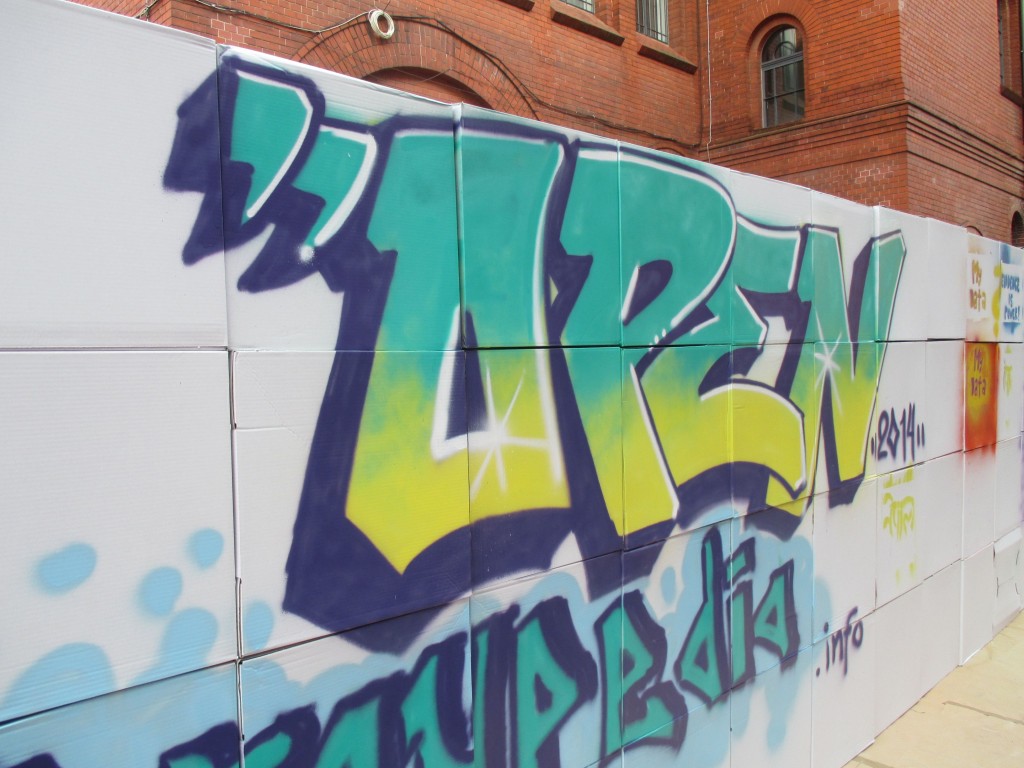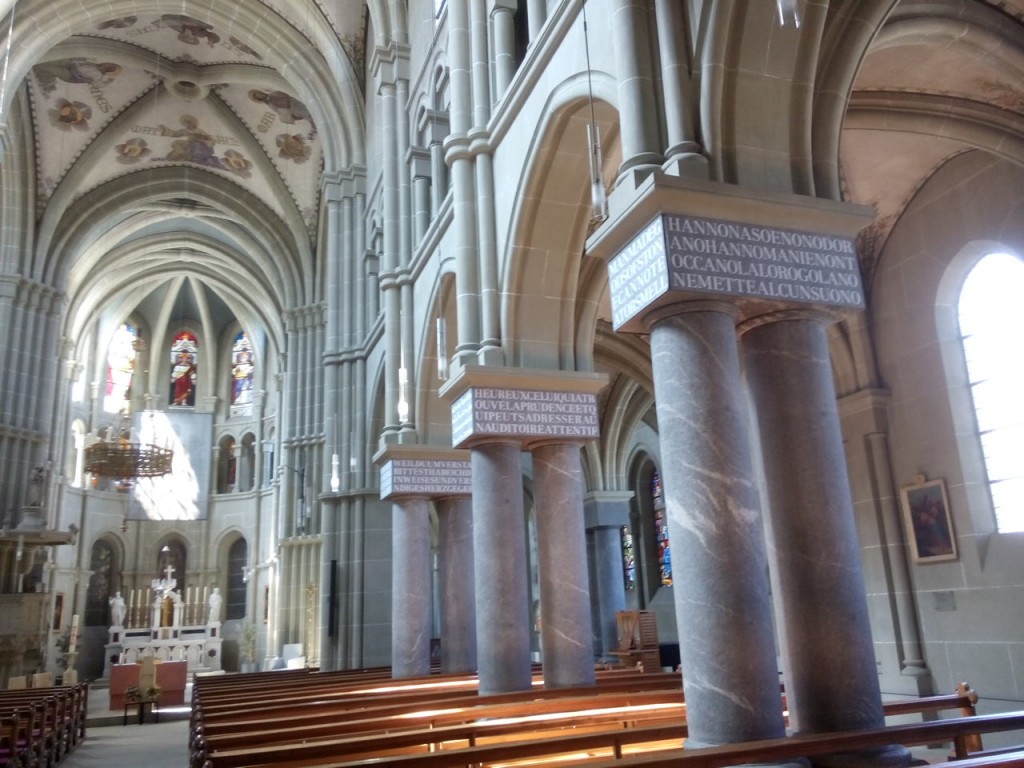How I became @sodacamper
This is part personal story, part prosaic longread. TL;DR: I am trying to bring the School of Data into Switzerland, with a twist.
Did you know that the word school derives from the Greek σχολή, originally meaning “leisure”? The German-language Wikipedia reminds me that at the beginning of all scholastic learning is the privilege of being able to apply our time to learn freely.
Eine Schule (lat. schola von griechisch σχολή [skʰoˈlɛː], Ursprungsbedeutung: „freie Zeit“, „Müßiggang, Nichtstun“, „Muße“, später „Studium, Vorlesung“)
With this in mind, the search for (Open) Knowledge, and in particular the discovery of new knowledge through Open Data needs to begin at home, not only in the workplace. There is an overwhelming, paralysing array of possibilities: new data sources, new ideas, new programming languages, new movements… You name it – it’s out there, beckoning for attention, discovery, and the never-ending pursuit of truth. What are the forces that compel us to passively accept, instead of to filter, analyse, relate, rediscover? What is richness and poverty in a century when, more than ever before, knowledge is power, and our individual, limited, flawed, fungible, human attention span – the resource?

Throughout the past decade while working to various capacities in IT, I have been struggling to explain my passion for information technology to friends and family. At the end of the day, with all these tricks and tools: am I able to make wiser life choices? Am I making full use of some part of the flood of information going through my electronic devices? Am I becoming a better person by practising what I preach? Since the start of the year this inquiry has become more urgent, and I have reduced my engagements to focus on looking after my children, and thinking about some of these unsettling questions – with a view to starting up a new venture. Some of you reading this might guess at my response, as we have spent the time together to work through the problem and design possibilities. Thank you for your life schooling and helping me through this phase – it is not quite over yet, but I already hope you will stick around and be part of the next!
So, let’s get back to the headline: we were saying something about a school? In my case, it is more of a school of thought than an actual institution in the usual sense of bricks and glass and chalkboards. The original seed could be found here on this blog: last summer the thought evolved into the idea to fork and apply the excellent open educational resources of the School of Data, a working group of Open Knowledge, one of the parents of the association Opendata.ch. The more I learned about the School of Data, the more excited I was – and also daunted by their ambition of changing the world one class at a time. The concept is brilliant – hire trainers well versed in the wizardry of data, from pivot tables and databases to CKAN, JSON and D3. Coach them and bring them out to places around the world where data can make a difference. Not just a change in direction of a multi-year corporate strategy. We are talking about making a difference in the daily lives of hundreds or even thousands of people in a matter of weeks, sometimes days. And it is working. I would really love to see more support and funding for this disruptive organisation.

I considered applying to be a Fellow, while thinking about ways to have a similar, if somewhat less ambitious, impact right in my own neighbourhood. I didn’t need to think long – all I had to do was collect some data: take note of complaints, listen to people angry at their social network, their train schedule app, their online map, their spreadsheet, and so on. Computers are fading into the background, while we get busy living our data-enabled lives, and we are frustrated by our inability to control and channel the data we are interested in – and even creating ourselves. A lot of people have written smarter things about this, all I am saying is that it is easy to notice the trend. We ‘get’ where this technology is promising to take us, becoming independent of devices and filesystems, but we are roadblocked by incompatibilities, frustrating design flaws, the vestiges of the Desktop Era and proprietary lock-in. Meanwhile the IT industry is going through one crisis after another, unable to let us relive the happy fascination with computing of the early 80s and late 90s, continuing to test our patience with ridiculous fees for tiny amounts of bandwidth. The lack of universal WiFi / 4G may the last real consumer hardware problem.

None of this matters as much if we look behind the curtain and learn how to accept both the “hard” structural changes of technology, and the “soft” cultural changes in the way we talk about it, the way we set expectations of each other and ourselves in regards to communication and information. It seems to me that the hardest part in this is confronting the existential problem that the Internet poses to our brain. In a world where all knowledge is interconnected, how is original thought still possible? Useful? Relevant? Wouldn’t a more natural response be to directly connect our hour-by-hour choices to a balance in a Bitcoin wallet, and optimise, optimise, optimise? Are we really afraid of living in the Matrix, or just of taking the red pill? Google’s answer: watch those cats…
While we await the catopalypse, my answer to this is a School of Open Data Arts – a meeting point in the heart of densely developed, busy, interdependent Old Europe to share tools and skills and the impetus to take our search knowledge back to the roots, by applying the effective methods of data science to the compelling narrative of an artwork. For example: a beautifully designed infographic as a political message, an intricate interactive app for a purely hypothetical business plan, massive amounts of information used for a one pixel exhibit, and anything else that makes fun of data, makes it fun to play with data, lets us make our lives more data-ful without overdosing on technology and losing sight of nature. Putting the Art into Open Data – a techno-political movement and philosophy.
I have heard it said that at some point in life, everyone wants to start a school. I’ve really enjoyed my chances in the past year to teach classes at university (a tip of the hat to my friend Matthias Stürmer for getting me through the door), as much I have tutoring kids and friends learning to code. Maybe it has something to do with a tipping point, when our curiosity and ambition to grab as much information as we can transforms into an inexplicable need to give it all away? Who knows. It just makes perfect sense, as does a quote on the pillar of a church in town where I wandered in by chance today:
heureux celui qui a trouvé la prudence et qui peut s’adresser à un auditoire attentif [Ecclesiasticus (Sira) 25:9]
To sum up, it seems I am finding myself at the helm of a budding project that should set this record straight. A motivated and interesting team has quickly formed, and we have room for more coaches and supporters. At some point there may be opportunities for partners, sponsors, investors. In the meantime, we want eager participants and fellow students – no matter your level of IT anger/expertise. See you and your data at school!

